Photographs: Reliance Industries/Handout/Reuters T N Ninan in New Delhi
You might have thought that the United Progressive Alliance establishment had got its fill of scams, and would want to steer clear of any more. But you would be dead wrong, because the decision to allow Reliance and others to double the price of natural gas boggles the mind with its barefacedness.
Bizarrely, the price approved by a Cabinet committee on Thursday is 24 per cent higher than what was reportedly favoured by the "parent" ministry of petroleum and natural gas for April-June 2013. The two primary customers for gas are the power and fertiliser industries; the power ministry wanted no price hike at all, and the fertiliser ministry was apparently in line with what the ministry of petroleum and natural gas had indicated.
...
Govt courts controversy by increasing gas prices
Image: Reliance Industries KG-D6's facility in Andhra Pradesh.Photographs: Reliance Industries/Handout/Reuters
So too the finance ministry, which has to worry about power and fertiliser subsidies ballooning, or higher prices for these essentials adding to inflation. So it is not clear who or what persuaded the Cabinet committee to agree to a price that was obligingly recommended by that world authority on energy pricing, C Rangarajan (whose day job is as a macroeconomist).
The Planning Commission, headed by another economist ally of the prime minister, apparently wanted a still higher price. But if you believe that the opinions of two economists outweighed all the ministries concerned, you'll believe anything.
...
Govt courts controversy by increasing gas prices
Image: The control room of Reliance Industries KG-D6 facility in Andhra Pradesh.Photographs: Reliance Industries/Handout/Reuters
Remember that the previous minister for petroleum and natural gas, S Jaipal Reddy, was shunted out after he wrote a strong note opposing what has now been approved. It is also worth retelling that the head of Reliance's gas business had told this newspaper some three years ago, at the height of an earlier controversy over gas pricing, that Reliance would make a profit on its gas even at $2.34 per million metric British thermal units (mmBtu).
The rupee was then nearer 47 to the dollar than 60 (so he was talking of a rupee price of about Rs 110, against the Rs 500 that has now been approved for next year). So does it stink? You bet!
...
Govt courts controversy by increasing gas prices
Image: Reliance Industries KG-D6's floating production storage and offloading vessel is seen off the Bay of Bengal.Photographs: Reliance Industries/Handout/Reuters
The real-life question now is, who would set up a gas-fired power station at this price? Power company experts say that every dollar in the price of gas contributes (depending on various factors) between 40 and 50 paise to the cost of a unit of power.
Along with fixed capital cost, the effective cost of power at the new price for gas, at the generating station before transmission and downstream costs, would be about Rs 5.50 per unit. That compares with about Rs 4.50 per unit for a power plant using imported coal. Power based on local coal would be much cheaper.
...
Govt courts controversy by increasing gas prices
Image: Mukesh Ambani, Chairman, Reliance Industries, with wife Nita in Mumbai.Photographs: Punit Paranjpe/Reuters
Sure, some of the 25,000 MW of power capacity that is starved of gas today may buy gas even if it is unremuneratively priced (in the same way that trapped pilgrims in Uttarakhand were willing to pay any price for some food).
But what the Cabinet has done is to make what is emerging as the world's cheapest and cleanest fuel an uneconomic proposition. Breathtaking, isn't it? If power consumers and fertiliser users will now be told to pay more in order to ...
Govt courts controversy by increasing gas prices
Image: An employee counts rupee notes at a cash counter inside a bank in Kolkata.Photographs: Rupak De Chowdhuri/Reuters
Given that the net annual payout would run into tens of thousands of crores, the question poses itself: how is that more justified than what the government's economists consider boondoggles, like the rural employment guarantee scheme or the proposed food security law?
Is any more proof needed that India's reforms, so-called, are business-friendly rather than market-friendly?

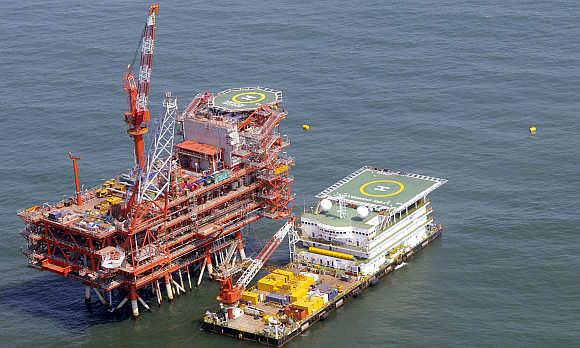
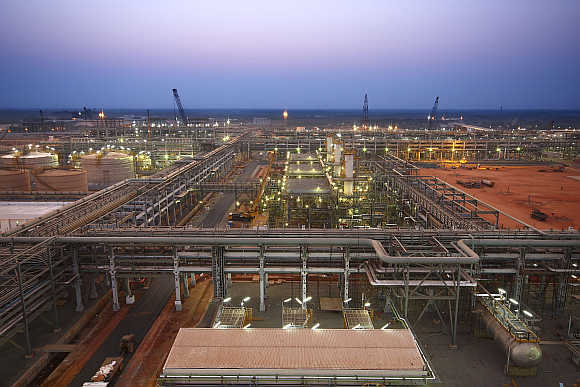
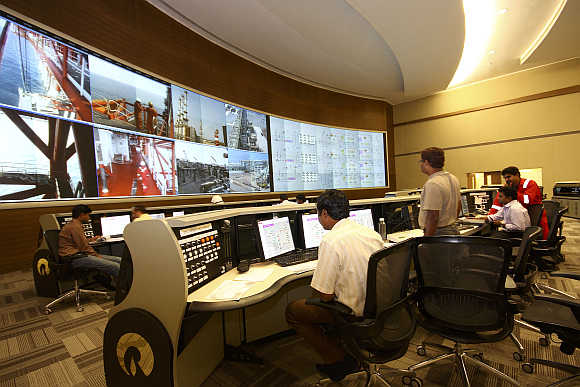
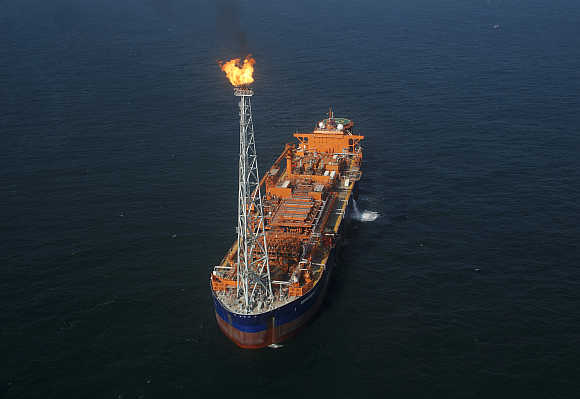
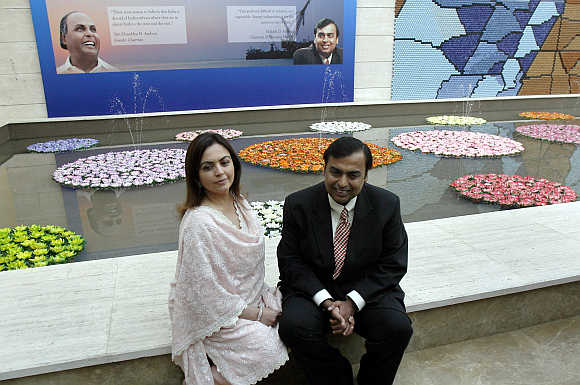
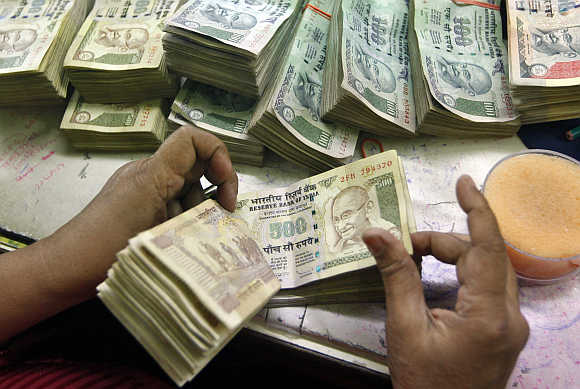

article